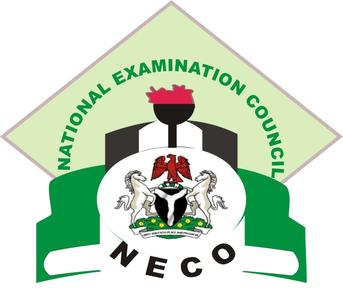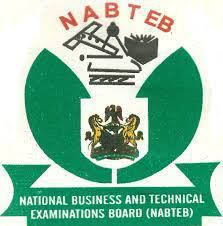Waec Business Management Syllabus/Questions 2024
This is the official 2024 waec Business Management syllabus and Questions and Answers. Rotate the screen of your phone for full view.

Waec Business Management Syllabus
The course in Business Management at the senior school level embraces principles and activities in the core functional areas of business management. It also covers legal environment of business, information technology, globalization, economic integration and entrepreneurship.
See
2024/2025 Waec Agric Science Syllabus
- Waec Business Management Syllabus AIMS
The examination therefore intends to test candidates’
(i) understanding and appreciation of the basic concepts, principles and practices of business management;
(ii) understanding of the role of business management in an economy;
(iii) ability to relate the concepts and principles of business management to practical business situations.
(iv) ability to pursue further studies in business management.
- SCHEME OF EXAMINATION
There will be two papers, Paper 1 and Paper 2; both of which will constitute a composite paper and will be taken at a sitting.
PAPER: 1 This will consist of fifty compulsory multiple-choice objective questions which will cover the entire syllabus and will carry 30 marks. It will last1 hour.
PAPER: 2 It will consist of a compulsory case study question and seven other essay questions, out of which candidates will be expected to answer any three. The case study will range between 200 and 250 words and will carry 25 marks, while the other questions will carry equal marks of 15 each. The paper will therefore carry a total of 70 marks.
-
Waec Business Management Syllabus
| TOPICS |
NOTES |
| 1. NATURE OF MANAGEMENT
1.1 Meaning and Process of
Management
1.2 Forms of Business
Organization
1.3 Business and Society
2. FUNCTIONS OF
MANAGEMENT
2.1 Planning and Decision
Making
|
1.1.1 Meaning of Management and
administration
1.1.2 Basic Functions of Management
1.1.3 Levels of Management
1.1.4 Types and Roles of Managers 1.1.5 Difference between Administration
and Management
1.2.1 Meaning of Business Organization
1.2.2. Identification of Major Forms: (Sole
Proprietorship, Partnership, (Sole Proprietorship,
Limited Liability Company, Public
orations, Co-operative society) Co-operative society) Company, Public orations, Co-operative society)
1.2.3. Procedures for the
formations/Characteristics,
advantages and disadvantages of each
form.
1.2.4 Causes of business failure.
1.3.1 Meaning of Business Environment
Business Environment, Business Environment, Environment Business Environment,
1.3.2 Forces in the Businesses Environment Environment
1.3.3 Ethical, legal and social
responsibilities of Businesses. responsibilities of Businesses.
1.3.4 Primary and Secondary stakeholders –
meaning and differences.
1.3.5 Responsibilities of businesses towards
2.1.1 Meaning and importance of planning of planning
2.1.2 Steps in planning, Types of planning, Limitations to planning
.2.1.3 Meaning and of planning, Limitations
to planning
2.1.3 Meaning and importance of decision
making. importance of decision making. planning importance of decision making. stakeholders. businesses towards stakeholders. 1. |
| TOPICS |
NOTES |
|
2.2 Organizing
2.3 Directing
2.4 Controlling |
2.1.4 Step in the decision making process.2.1.5 Types of (Programmed and Non-
programmed) decisions. Non-programmed) decisions. making process. 2.1.5 Types of (Programmed and Non-programmed) decisions.
2.1.6 Levels of management decisions.
2.2.1 Meaning, importance and activities of
organizing
2.2.2 Principles of organizing,
Organizational structure and
Organizational chart
2.2.3 Centralization and decentralization-
meaning differences, advantages and
disadvantages.
2.2.4 Meaning and benefits of delegation.
2.2.5 Reasons why managers do not delegate
2.2.6 Reasons why subordinates do not
accept Delegation
2.2.7 Guidelines for delegation
2.3.1 Meaning and elements of directing
2.3.2 Motivation – meaning, intrinsic and
extrinsic factors
2.3.3 Maslow’s Hierarchy of Needs.
2.3.4 Leadership importance of good
leadership.
2.3.5 Leadership styles and Sources of
power available to leaders.
2.3.6 Communication –meaning,
importance,
channel formal and informal
2.3.7 The Communication process
2.3.8 Barriers to communication
2.3.9 Guidelines to effective
communication
2.4.1 Meaning and reasons for controlling
2.4.2 Steps in controlling.
2.4.3 Tools for controlling
|
| TOPICS |
NOTES |
| 3. MANAGEMENT INFORMATION
TECHNOLOGY
4. LEGAL ENVIRONMENT
OF BUSINESS
4.1 Law of Contract
4.2 Principles of Agency
4.3 Negotiable Instruments
5. FINANCE AND
FINANCIAL
INSTITUTIONS
5.1 Money
5.2 Banking |
3.1 Concept of ICT3.2 Data and information, meaning,
differences;
and sources of business information
3.3 Functions of the computer
3.4 Applications of computers in Business
3.5 Advantages and challenges of the use of
Computers in business
4.1.1. Meaning and elements of contract
4.1.2 Classification of contracts
4.1.3 Vitiating factors (Void and Voidable
contracts)
4.1.4 Ways of discharging a contract
4.2.1 Creation of agency
4.2.2 Rights and duties of a principal
4.2.3 Rights and duties of an agent
4.2.4 Termination of agency
4.3.1 Meaning and characteristics of
negotiable instruments
4.3.2 Types of negotiable instruments
(Cheques; Bills of exchange;
Promissory notes)
4.3.3 Cheques: Class, types, advantages,
disadvantages and ways of avoiding
cheque frauds.
5.1.1 Meaning and characteristics of money characteristics of money
5.1.2 Functions of money
5.1.3 Meaning and causes of inflation
5.2.1 Types of banks
5.2.2 Functions of the Central bank
5.2.3 Functions of commercial and other
types of banks
5.2.4 Types of bank accounts.
5.2.5 Tools of monetary control
|
| TOPICS |
NOTES |
| 5.3 Risk Managementand Insurance
5.4 Stock Exchange
6. ROLE OF GOVERNMENT IN THE ECONOMY
7. INTERNATIONAL
TRADAND PROBLEMS
OF DEVELOPING
ECONOMIES
7.1 International Trade |
5.3.1 Meaning of risk and risk management5.3.2 Types of business risks
5.3.3 Meaning and importance of insurance
5.3.4 Principles of insurance
5.3.5 Types of insurance and insurance
Policies
5.4.1 Meaning and functions
5.4.2 Types of securities
6.1 Role of government in an economy
6.2 Sources and types of government
revenue
6.3 Purpose of taxation
6.4 Types of taxes and challenges of tax
collection
6.5 Types and items of government
Expenditure
7.1.1 Meaning of trade
7.1.2 Difference between domestic and
international trade
7.1.3 Documents used in domestic and
international trade
7.1.4 Reasons for international trade
7.1.5 Theories of absolute cost and
comparative cost advantage
7.1.6 Restrictions in International trade
Balance of Payments (BOP) and
measures for correcting BOP deficit
|
| TOPICS |
NOTES |
| 7.2 Developing Economies
8. GLOBALIZATION AND
ECONOMIC
INTEGRATION
8.1 Globalization
8.2 Economic integration
9. FUNCTIONAL
MANAGEMENT
9.1 Elements of Human
Resource Management |
7.2.1 Challenges of developing economiesin relation to International trade
7.2.2 Ways of improving Developing
Economies by Government
7.2.3 Role of the following institutions in
international trade : International
Monetary Fund (IMF), International
Bank for Reconstruction and
Development (IBRD), United Nations
Conference on Trade and
Development (UNCTAD).
8.1.1 Meaning and causes of globalization
8.1.2 Advantages and disadvantages of
Globalization
8.2.1 Meaning of economic integration
8.2.2 Roles of the following in economic
integration :
Economic Community of West
African States (ECOWAS), African
Union (AU), European
Union (EU), P African European Pacific
Countries Association of South and
Eastern Asian Nations (ASEAN).
9.1.1 Meaning of human resource
Management
9.1.2 Functions of human resource
management
9.1.3 Steps in the recruitment and selection
process
9.1.4 Sources of recruitment
9.1.5 Types of training;
9.1.6 Job Analysis (job description and job
specification)
9.1.6 Performance appraisal – meaning and
importance |
| TOPICS |
NOTES |
| 9.2 Labour Relations
9.3 Fundamentals of Production Management
9.4 Principles of Marketing |
9.2.1 Meaning of labour relations, TradeUnions and industrial relations.
9.2.2 Functions of Trade Unions
9.2.3 Employers’ Association: Meaning and
functions.
9.2.4 Collective bargaining-process
importance and rights of parties
involved.
9.3.1 Meaning of production and production
Management.
9.3.2 Forms of Production – extractive,
manufacturing, construction,
commercial and personal services
9.3.3 Factors of production
9.3.4 Meaning of specialization and
exchange
9.3.5 Advantages and disadvantages of
specialization
9.3.6 Types of production process – job,
batch, flow
9.3.7 Steps in production planning and
Control
9.4.1 Meaning of Marketing: Meaning and
activities.
9.4.2 Market segmentation: Meaning and
bases.
9.4.3 Elements of the marketing mix
(product, price,promotion and place)
9.4.4 Steps in new product development
9.4.5 Stages of product life cycle
(introduction, growth, maturity and
decline)
9.4.6 Functions of packaging and uses of
branding
9.4.7 Factors affecting pricing and pricing
objectives
9.4.8 Promotion: Meaning, importance and
types
9.4.9 Channels of distribution
9.4.10 Functions of wholesalers and retailers |
| TOPICS |
NOTES |
| 9.5 Electronic Commerce(e -Commerce)
9.6 Business Finance
10. ENTREPRENEURSHIP
AND SMALL BUSINESS
10.1 Entrepreneurship
10.2 Small Business |
9.5.1 e-commerce: Meaning andimportance.
9.5.2 Meaning of Business Finance.
9.6.1 Short-term and long-term sources of
finance
9.6.2 Government lending programmes;
Venture capital fund
10.1.1 Meaning of entrepreneurship
10.1.2 Role of entrepreneurs
10.1.3 Characteristics of an entrepreneur
10.1.4 Content of business plan
10.1.5 Reasons for business successes and
failures
10.1.6 Record Keeping: Meaning, importance and types.
10.1.7 Time Management: Meaning, importance and techniques.
10.2.1 Small businesses: Meaning and
categories
10.2.2 Procedures in the formation of small
businesses
10.2.3 Importance of small businesses in the
economy
10.2.4 Challenges of small businesses
10.2.5 Role of government in promoting
small businesses
10.2.6 Ways of sustaining an established
business |
That is all on Waec Business Management Syllabus
Waec Business Management Syllabus
Waec Business Management Syllabus
Waec Business Management Syllabus
Waec Business Management Syllabus
Waec Business Management Syllabus
Waec Business Management Syllabus
Waec Business Management Syllabus
Posted by Prof. Francis on September 18, 2018.
Tags: 2019/2020, 2024 Waec business management syllabus, Business Management, Business management Waec syllabus, QUESTIONS AND ANSWERS, Syllabus, WAEC, Waec business management syllabus
Categories: WAEC Syllabus Past Questions and Answers





